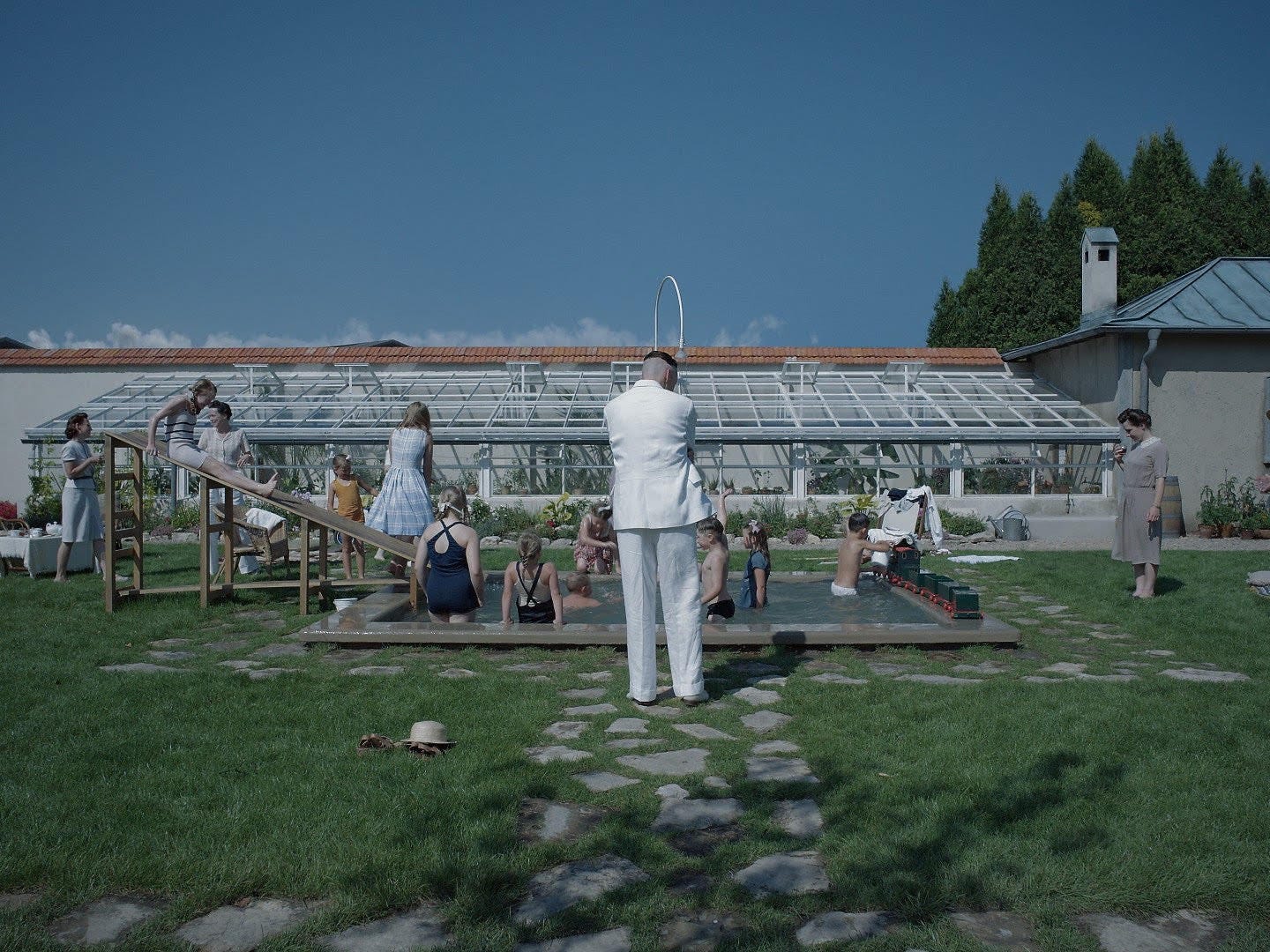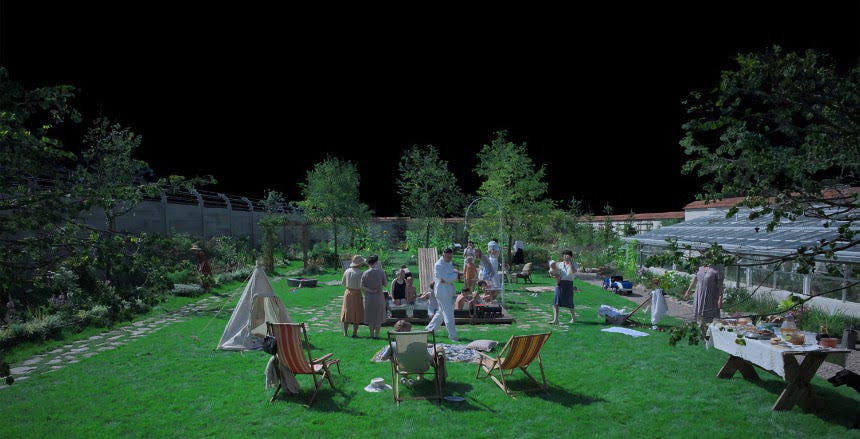'The Zone of Interest' : A Mundane Peak Behind the Curtain of Our Most Evil History
This film is based on real history, so it feels strange to offer a “spoiler warning,” but I do explore how Glazer’s film engages with history in a form-breaking way, so put off reading if you want to experience the film without any pretense.
In Jonathan Glazer’s The Zone of Interest, you are presented a beautiful, idyllic portrait of a functioning family living in great means, tending to a garden, enjoying their rich livelihood. The skies are always clear, the flowers stand tall, it looks near perfect with the exception of the concrete walls and wire that line the property, the other side of which is home to one of mankind’s most bleak and purely evil creations, the Auschwitz concentration camp. Glazer’s film follows Rudolf Höss (Christian Friedel), the commandant of Auschwitz, and his family living a peaceful life next door to the camp, in a slice-of-life fashion which stands to emphasize the banality of sheer evil, and how brutality relies on quiet complicity to thrive.
The aforementioned soundscape is what turns this beautifully photographed film, which features no on-screen depictions of the violent nature of the Holocaust, into a work of pure horror. As Höss and his wife (Sandra Hüller) tend to their children, dog, and garden, gunshots echo every few seconds. Trains are heard coming and going. Heavy, mechanical sounds of industrial ovens drone on throughout the film. And screams, piercing through every moment where what you see on screen is at odds completely with the sickening reality occurring just beyond those walls, one which the Höss family is content to neglect entirely.

The Zone of Interest breaks from the conventions of telling a Holocaust narrative by refocusing onto the mundanity of the lives of some of the most involved perpetrators, avoiding the pitfall of flattening the Nazis into caricatures who are so cartoonishly evil that we lose any sense of how they could have ever been real people. Genocides are built and perpetuated by everyday people, through active participation and through passive acceptance of the status quo.
This is a rarity of a film for how the visual elements are in direct contrast with the sounds decorating the picture. By keeping the evil always peeling away at the margins of the frame, by containing it to only the sounds and not the images we have grown accustomed to in Holocaust narratives, The Zone of Interest offers an illuminating perspective on the nature of evil.
In the haunting final minutes, Höss descends a staircase, stopping twice to retch, perhaps his conscience is finally catching up with him, or this is an instinctive biological response to the gruesomeness he has wrought, the human ash in his lungs. He gazes down a corridor which quickly recedes into pitch black, and the film suddenly cuts away.
We are now in the modern day, and workers are shown cleaning the Auschwitz memorial museum. Piles of shoes, prison uniforms, gas chambers, all arranged to communicate the enormity and the brutality of his life’s work. We cut back, Höss is still staring down the corridor into nothing, maybe he saw what we did, a vision of how he will be resigned to history. Höss continues descending the staircase, perhaps to the Hell where he knows he belongs. The Zone of Interest concludes with a lengthy shot of empty space, a black screen, the sight of which will remind you that you may have forgotten to breathe over the silent, sobering final sequence. Yet there is no resolve. The damage has been done, we cannot undo it, and we too are complicit in a society which cannot reckon with the evil of our past, let alone that of the present.
It is impossible to watch this film and not think about the ongoing destruction in Palestine. Glazer made vague allusions to the situation, but stopped short of saying the words directly. I’m inclined to make the connection explicitly clear even if the people working on the film are too cautious to do so. While bombs are continually thrown at this occupied land, taking the lives of countless men, women, and children who have been forced into an open-air prison, we go about our days like it is not happening. Somewhere right now, a person not too dissimilar from the kind seen in The Zone of Interest is laboring over what time to launch the next barrage of missiles with the same energy that you bring to checking your morning emails.
The bleakness depicted in this film is rooted in a history we still haven’t learned from, making The Zone of Interest an experience of utmost importance, one which is challenging in a way that urgently needs attention from those who are unfortunately least willing to offer it.




